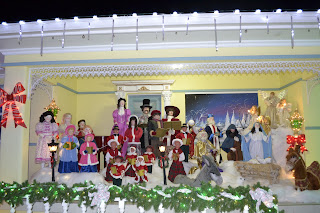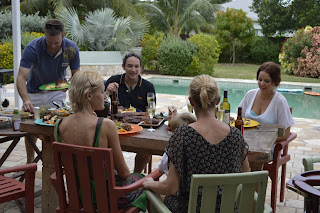Two neighbouring Carribbean islands, separated by a flight of just an hour, but as far apart in identity as two countries can be. The journey from Cuba to the Cayman Islands was like crossing continents: from an isolationist Communist nation still using ration books, with no shopping malls, no advertising, and many living in poverty; to a capitalist’s dream: a tax haven, the fifth largest banking centre in the world, where what you want, you buy. It was a bit of a head f*%k, to put it bluntly.
Just before Christmas, we “graduated” from our language school in Havana and headed straight to the airport. The taxi ride out there was standard: the rusting fiat dodged potholes and chickens on a road lined with ramshackle houses and Communist propaganda signs. We were frequently cloaked in choking black fumes from large trucks steaming past. Our friendly driver, clearly working illegally, took our money before we reached the airport and then, in front of a policewoman, hugged us goodbye as if we were family and wished us “Feliz Navidad.” We ate another crap ham and cheese sandwich as we waited for our plane.
We were barely in the air long enough to finish a rum punch before Grand Cayman came into view – a tiny flat island, which looks like someone has plonked an American suburb onto a tropical paradise: there are wide roads and neat concrete block houses, framed by a coastline of palm trees and turquoise water.
The airport terminal looked like a Swiss chalet. On the viewing platform, in its A-frame roof, Connie (my old friend) and Jefferson (her 2-year-old son) were waving at us. We climbed into their new Toyota Hilux and marvelled at the smooth roads, interrupted by roundabouts sponsored by various banks and festooned with blinking Christmas trees. Occasionally we’d be passed by an unnecessarily-large-gas-guzzling-status-symbol car, but there was no pollution – bliss.
We pulled into a cul-de-sac of identical condos: large open-plan, air-conditioned homes, a tennis court, and a swimming pool. “Welcome to Melrose Place,” Connie said. Now, I quite enjoy roughing it when I’m travelling, but I won’t lie – it was good to get back to some home comforts: a good bed, great food, easy company and copious amounts of wine.
The Caymans are a British territory, but Caymanians hearts’ appear to be in America. US networks beam into people’s homes. There are 6 KFCs on the 200sq/km island. The supermarket was stocked with super-sized American produce. (Though it doesn’t come cheap - unlike Cuba, with its fertile soil, everything in the Caymans is imported, so a small tub of tomatoes cost £3.99 – or $NZ8.)
This small island – only 50,000 people – is dominated by big business: banking, accounting and law. The population includes 19,000 expats, though they can be restricted by a “Caymanians-first” employment policy, where locals are propelled into jobs ahead of more qualified foreigners. Probably understandably for a small island, the education system isn’t great – unlike in Cuba, where the government prides itself on the importance it places on education. (All very well, but there aren’t the jobs to match its highly qualified population.)
Money reigns. We drive around, passing diamond stores, the Ritz, Bel Air Road, Condos La Valencia. Dozens of homes have gone crazy with Christmas lights – the power needed to run them (which doesn’t come cheap in Cayman) would have kept a Cuban cabaret in business for years.
One beach-front monstrosity is on sale for more than $50million – rumour has it Justin Bieber is buying it. No wonder Cubans’ eyes widened when we told them we were going to Las Islas de Caiman for Christmas. “Bueno”, they said enviously. Most will never make it to their neighbour – the flight alone is unaffordable. Many in the Caymans have a dimmer view of Cuba – it’s known as a destination for prostitution. The Caymans are not without problems though. Gang warfare abounds, with frequent shootings on two rival streets (next door to each other!)
So, which did I prefer? The Caymans win for comfort, liveability, company and food (though I got sick in both countries – but not from Connie’s amazing cooking!). But for me, Cuba triumphs – it is economically poor, but culturally richer, and something about Cuban’s joie-de-vivre despite their conditions gets under your skin.
Here are a few snaps of our Christmas celebrations – thanks to Connie, Jase and Jefferson for a brilliant few days.











No comments:
Post a Comment